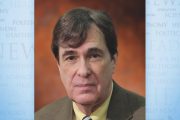
Students of history should nod with regrettable recognition upon hearing a story from 255 years ago about a tyrannical central government carrying out frequent assaults on the rights of Americans. Proving that the past is nothing but prologue to the future, in this article I share with you the story of one of the most famous men in American history and his delivery 255 years ago today of one of the most famous speeches in American history. Sadly, both the message and the messenger are little remembered now. And perhaps that’s why we are still suffering from the same despotic denial of rights that our ancestors suffered. This is the story of James Otis, Jr. and the discourse he delivered on June 21, 1768.
On June 21, 1768, a pivotal moment unfolded in the annals of American history. James Otis, Jr., a prominent lawyer and patriot, stood before an impassioned crowd in Boston’s Old State House. His words, imbued with fervor and conviction, stoked the flames of liberty and set the stage for the American War for Independence.
In the years leading up to Otis’s speech, the tensions between the American colonies and the British Crown had been escalating. The British Parliament had enacted a series of measures, including the notorious Stamp Act of 1765, which sought to assert control over the colonies and impose taxes without their consent. The colonists, feeling the weight of oppression, sought leaders who could articulately express their grievances, intellectually invoke the rights of Englishmen as set out in Magna Carta, and rally popular support for resistance.
Otis, an esteemed lawyer renowned on both sides of the Atlantic for his brilliant oratory skills, took center stage that fateful day. His speech aimed to challenge the authority of the British Parliament to tax the colonies without proper representation. Otis argued that the colonists’ rights were being violated and that they should assert their natural rights as freeborn Englishmen, especially those rights protected for 500 years by Magna Carta.
Speaking of the quality of men occupying the benches of the House of Lords, Otis plainly and fearlessly declared:
’Tis notoriously known there are no set of People under the Canopy of Heaven more venal, more corrupt and debauch’d in their Principles — Is it then for their Superior Learning? no, by no means — tis true they are sent to the Universities of Oxford and Cambridge — and pray what do they Learn there? — why — nothing at all but Whoring, Smoking and Drinking.
Then, turning his vitriol on the House of Commons, Otis spoke with even greater invective:
What are those mighty Men that affect to give Laws to the Colonies? Surprising! — a parcel of Button-makers, Pan-makers, House Jockeys, Gamesters, Pensioners, Pimps and Whore Masters.
Oh, that we could hear someone calling out the criminals in Congress with such boldness today!
I should mention that comments such as those I just quoted prompted the colonial governor to denounce Otis’s speech as “insolent … treasonable declamation that perhaps was ever delivered.”
Insolent or honest? Regardless of the colonial governor’s opinion, after nine days of debate, the Massachusetts House voted 92 to 17 to defy the governor, demonstrating the influence of Otis on the laymen and legislators alike.
Otis’s speech reverberated across the colonies, striking a chord with the hearts and minds of those who yearned for freedom, but lacked direction or talented leadership. His powerful words resonated beyond the confines of the Old State House, reaching the farthest corners of the American colonies. Otis became a symbol of principled rejection of tyranny, inspiring countless others to join the cause of liberty.
One of the most memorable aspects of Otis’s speech was his assertion that “taxation without representation is tyranny.” This rallying cry encapsulated the core principle at stake in the growing conflict between the colonies and the British Crown. Otis passionately argued that the colonies deserved a voice in the decisions that affected their lives and fortunes. As with so many other acts of the government in London, the right to not be taxed without one’s own consent or the consent of his representative was expressly listed among the protections of Magna Carta.
James Otis, Jr.’s speech provided the legal springboard for the American Revolution and shaped the thinking of many prominent patriots who would later become instrumental in the fight for independence. His words became a touchstone for future generations, instilling a deep-seated belief in the rights of self-governance and liberty.
Otis’s influence extended beyond his speech that day. He went on to mentor and inspire a young John Adams, who would become a fundamental figure in the Second Continental Congress, helped draft the Declaration of Independence, and ultimately served as the second president of the United States. Adams credited Otis as the “patriot who taught me to think and to reason and to investigate truth,” emphasizing the profound impact Otis had on shaping his political philosophy.
What is perhaps the highest praise for Otis and his singular and seminal role in the run-up to the War for Independence was likewise delivered by John Adams who, after Otis’s speech against the General Writs of Assistance in 1771, said, “Then and there the child Independence was born.”
James Otis, Jr.’s speech on June 21, 1768, persists as a perpetual testament to the power of words and the indomitable spirit of those with the courage and conviction to challenge oppression. Otis’s eloquence and unwavering commitment to the principles of liberty galvanized the disparate and frequently feuding American colonies, uniting them against a common foe. His speech was the catalyst, propelling the young men of the Founding Generation along their trajectory toward American independence. Today, we honor James Otis, Jr., as a trailblazer who paved the way for the birth of a new nation founded upon the principles of freedom and self-determination.




